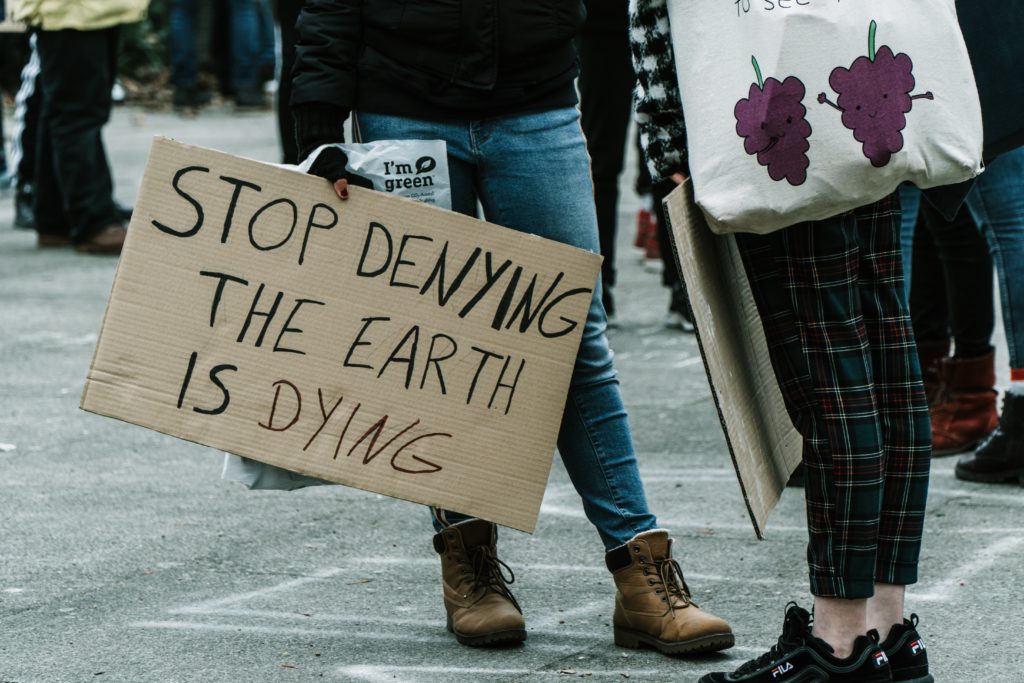The rise of eco-anxiety and how brands are tackling environmental issues
Feeling helpless when it comes to tackling climate change and its devastating impact on our planet? If so, you are not alone.
This #MentalHealthAwarenessWeek we’re discussing a topic which is currently incredibly high on the public’s agenda – climate change. You only need to turn on the news or log into Twitter and you’re bombarded with headlines on the devastating decline of our planet’s health. In today’s blog, we’re questioning the impact this has on our own mental health.
What is eco-anxiety?
Eco-anxiety is stress and anxiety triggered by concern over the catastrophic impacts of climate change and a feeling of powerlessness to do anything about it. Many people feel world leaders are failing to take the necessary action to tackle the problem. The recent protests by Extinction Rebellion for governments to prioritise our environment and its future resulted in over 1,000 arrests, reaffirming the severity of the issue.
A global assessment report by the IPBES has revealed that around one million species face extinction caused by nature loss due to human activity. It is, therefore, not surprising that environmental anxiety has become increasingly prevalent amongst us. An article by VICE entitled “The Climate Change Paper So Depressing It’s Sending People to Therapy” revealed that a recently published paper on climate change was so catastrophic; people had sought therapy after reading it.

Increasing awareness of environmental issues
Coupled with increased anxiety over the planet’s health is increased awareness. Heard the word biodiversity in the news lately? We expect so. Wondering what it is? We expect so. WWF defines biodiversity as the huge variety of animals, planet’s and insects on earth, and how they interact with each other.
Biodiversity provides us with essentials like food, water, shelter and medicine. The great news is that 70% of people surveyed said that they were increasingly aware of the issues surrounding biodiversity that affect our planet. As public awareness increases, brands also increasingly prioritise the problem. We’ve found some examples of brands who have put climate change on their agenda.

Eco-conscious marketing campaigns
Seventh Generation, an American organic household brand recently created a humorous, light-hearted advert in which a woman befriends tree in her garden, and creates her own rap. The lyrics go along the lines of “don’t mean to be pushy but use our recycled toilet paper on your tushy.”
Adidas continues to push sustainability to the top of their marketing agenda. This year Adidas turned Bondi icebergs swimming pool, overlooking Bondi beach into a tennis court. The purpose of the campaign was to launch the Adidas x Parley tennis collection. The Adidas range is made from 100% recycled ocean plastic which players wore in the Australian Open.
Corona created a wave of excitement with their fantastic wave of waste campaign. Corona placed plastic in another place it doesn’t belong to raise awareness of plastic pollution. An out of home display showed Chris Hemsworth surfing a wave of plastic waste near Old Street station. The public were invited to contribute to the campaign by adding to the wave of waste themselves, extending the campaign beyond the digital out of home display to become an interactive art installation.
As public awareness increases, brands also increasingly prioritise the problem. Extinction Rebellion is placing pressure on the advertising industry to “use their powers of persuasion to tackle the global climate and ecological emergency.” A Senior figure within the charity, who also comes from an advertising agency background, is asking marketers to push powerful messages. A great place to start would be the hard-hitting finding from a UN report that states we only have 12 years left to tackle the climate change disaster.
As we become increasingly aware of the negative impact we’re having on our planet, we hope to see more brands pushing environmental concerns to the top of their marketing agendas.


